Regenerative Supply
Chains in: Colombia
We go beyond the harvest at Finca Jerusalén to explore regenerative supply chains with Artisan Tropic.
Written by Johanna Anderson in collaboration with Leia Marasovich and the incredible team at Artisan Tropic.
Armenia, Columbia
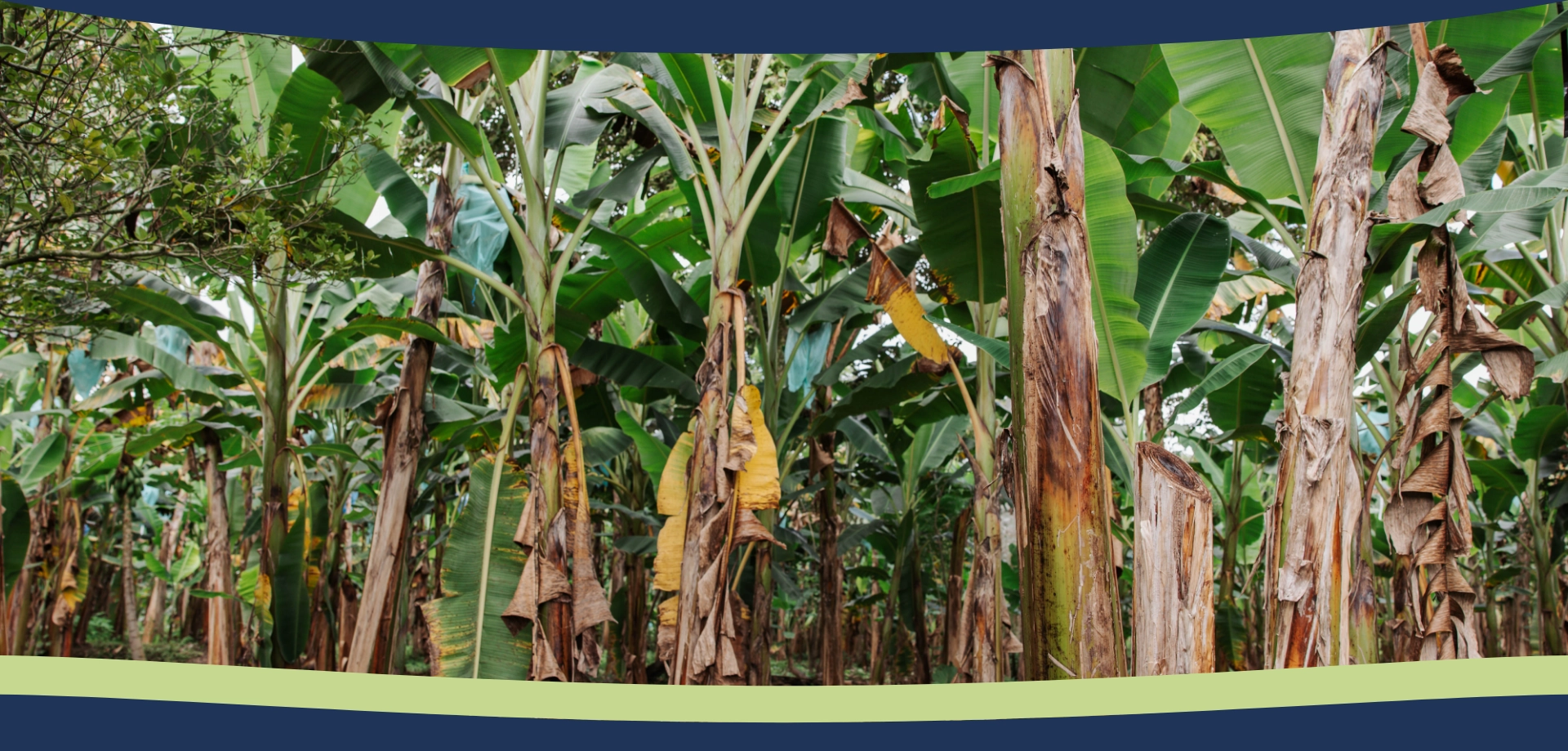
Reconnecting Soil, Food and People – The Heart of Colombia
As I step onto Finca Jerusalén in the vibrant landscapes of Armenia, Colombia, thumb sized raindrops welcome me, a tribute to many experiences from my childhood. The droplets kiss my face and body before merging with the scent of rich soil and ripening plantain fruit. As a Colombian-American this journey is more of a homecoming, a returning to the deepest parts of myself that are constantly looking for ways to express and connect to my heritage.

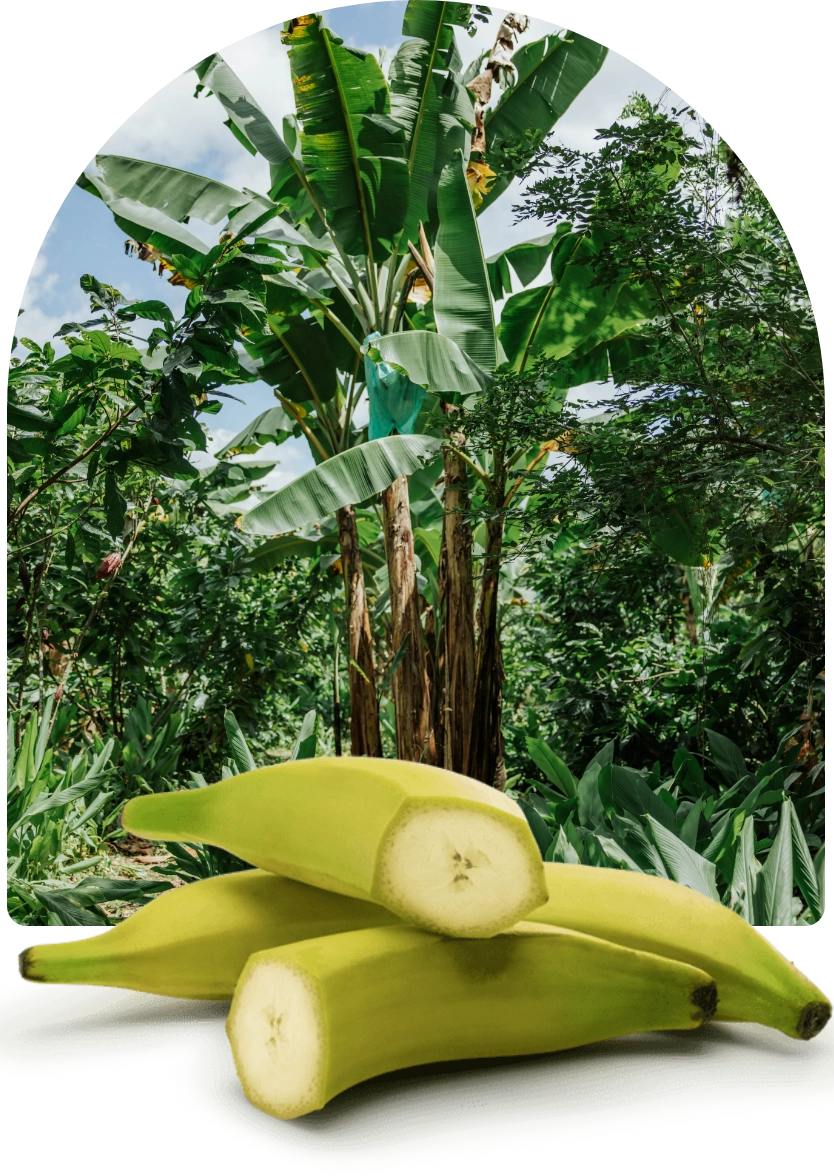
The plantain plant is understood by many as a nurturing figure, often referred to as the “mother plant.”
This metaphor stems from the plant’s life cycle and its role in sustaining new growth. Plantains are considered female because of their ability to give rise to new plants through their offshoots. When the plantain bears fruit, it is likened to a mother providing for her offspring. The plant’s leaves and trunk both play a crucial role in this process, each delivering essential nutrients and water to the developing “baby” plants. Interestingly, these young offshoots, known as “suckers,” have a unique way of “walking” away from the mother plant as they grow, gradually developing their own roots and shifting position, they establish themselves independently, ensuring the plantain grove continues to expand over time. This natural system of nutrient transfer and gradual spreading ensures that the young plants receive the support they need to thrive, much like a mother nurturing her children. This concept of the mother plant resonates deeply with the cultural reverence for plantains in many communities. It highlights the interconnectedness of life and the role that nurturing has in creating a more sustainable agriculture.
I think that humans can invent many machines, produce a lot of chips, products, go from the micro to the macro, but there is an aspect that will always exist—the sustenance of man,”
“For me, that is based in the alimentos and in the water. There is a relationship that a lot of us are not aware of, and that is the sun. The sun is fundamental for the sustenance of man. And here on our planet, the sun, water, and the soil are the elements needed to sustain us. One may not understand, but you just have to know and we act against maintaining this balance.
–Oscar

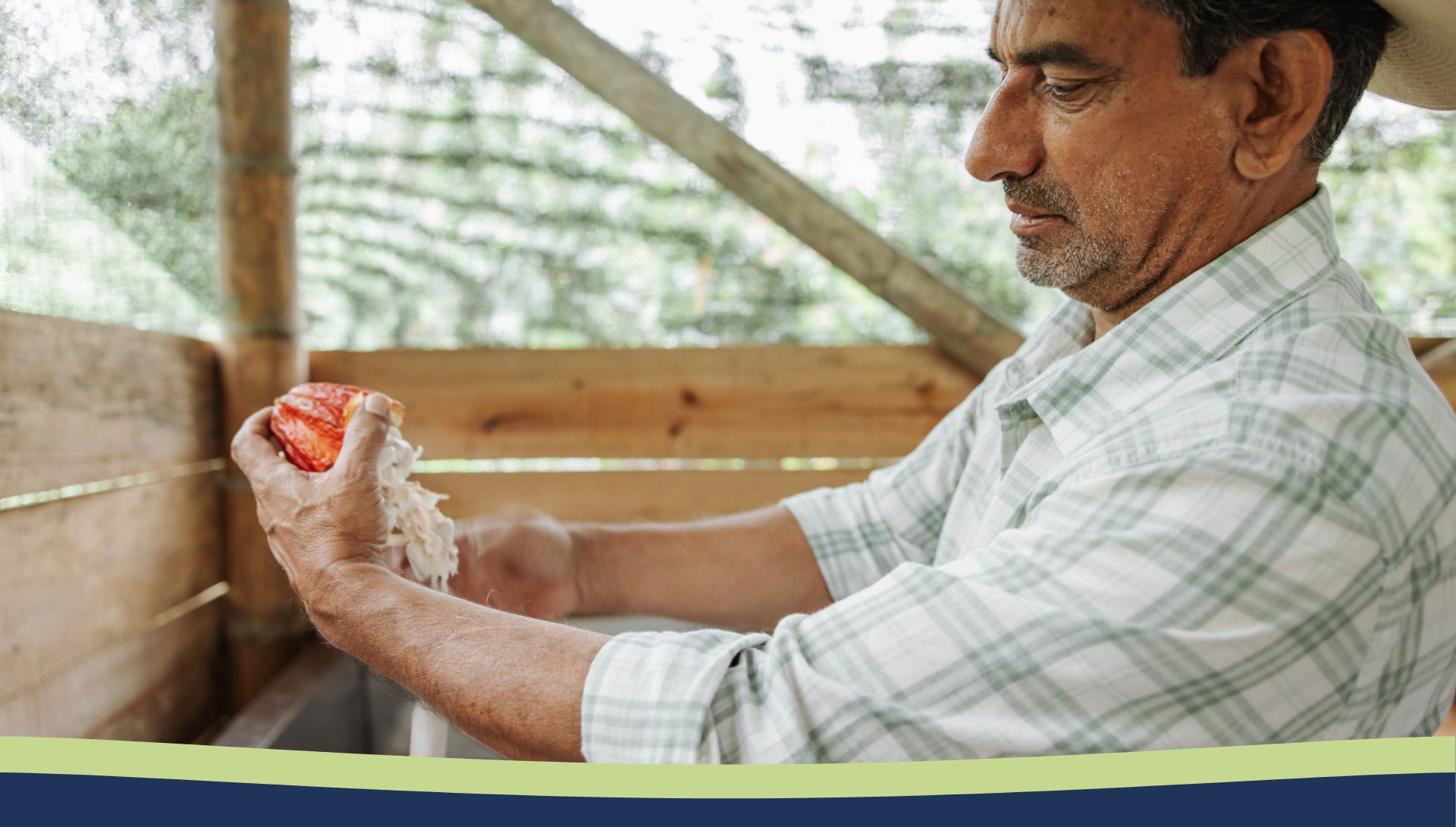
At Finca Jerusalén, I meet Oscar Agudelo, a trailblazer in regenerative agriculture and biodynamic farming from Quindío, the smallest department in Colombia. In Oscar’s work, he embodies the role of the masculine, holding space and caring for the feminine plantain plant. This polarity creates a beautiful crucible for his crops to flourish. “I work hard to hold space and support the earth,” he says as we walk past rows of achiote, “so she can continue to provide life and nurture us.” His belief that plants are living beings endowed with a soul guides every decision on hirs farm, a legacy passed down by his father. Oscar’s father was deeply connected to the soil and hoped his children would share his love for the environment. For Oscar, his commitment to the land is not just about cultivation; it’s about honoring a legacy “I manage this land at this time but in reality the owner of the land is the creator,” he tells me, embodying a philosophy deeply rooted in respect not just for the earth but the entirety of the universe.
Alongside him is Juan from Artisan Tropic, whose company stands as a beacon of ethical and sustainable business practices. Juan partners with Oscar to transform his plantains into a brand new assortment of grain-free , whole ingredient crackers, whose hero ingredient is plantain flour from Oscar’s farm. The partnership allows Oscar to continue to dedicate himself to the soil and its microorganisms through his farming practices. “We don’t use any chemicals. We plant without mechanization. We protect our water and reuse the elements from our farm. We make compost and other preparations to feed our crops from our own harvest.”

It is to observe what nature provides in the moment that we are going to cultivate.
We mix different plants, protect the soil, always using ground cover, never using agrotoxins. But it also has a spiritual component. We often forget that plants are living beings; they all have a soul. It is a kind of soul that contains them, and they are affected by their environment either for better or for worse. The colleagues next to them are affected. They are affected according to the caresses we give them. They are influenced by outer space and the constellations.
–Oscar
Oscar’s definition of regenerative farming is closely aligned with biodynamic farming. His gaze wanders across the grove as he lovingly leans on a plantain tree. “It is to observe what nature provides in the moment that we are going to cultivate. We mix different plants, protect the soil, always using ground cover, never using agrotoxins.
But it also has a spiritual component. We often forget that plants are living beings; they all have a soul. It is a kind of soul that contains them, and they are affected by their environment either for better or for worse. The colleagues next to them are affected. They are affected according to the caresses we give them. They are influenced by outer space and the constellations.”
Biodynamic agriculture and regenerative farming is knowing that there are other components that transcend what any of us do that affects our cells, our health.”
Oscar’s commitment to his employees is equally remarkable. Many of his workers have been with him for decades, a testament to their loyalty and the strong sense of community that thrives on the farm. He supports his employees’ families by investing in their educational journeys, helping them to pursue higher education and empowering them to understand the depth of the work they accomplish each day. This dedication to their personal and professional growth has resulted in an incredibly low turnover rate and earned him a reputation as an exceptional employer. He has cultivated not just a workforce, but a family on his farm.
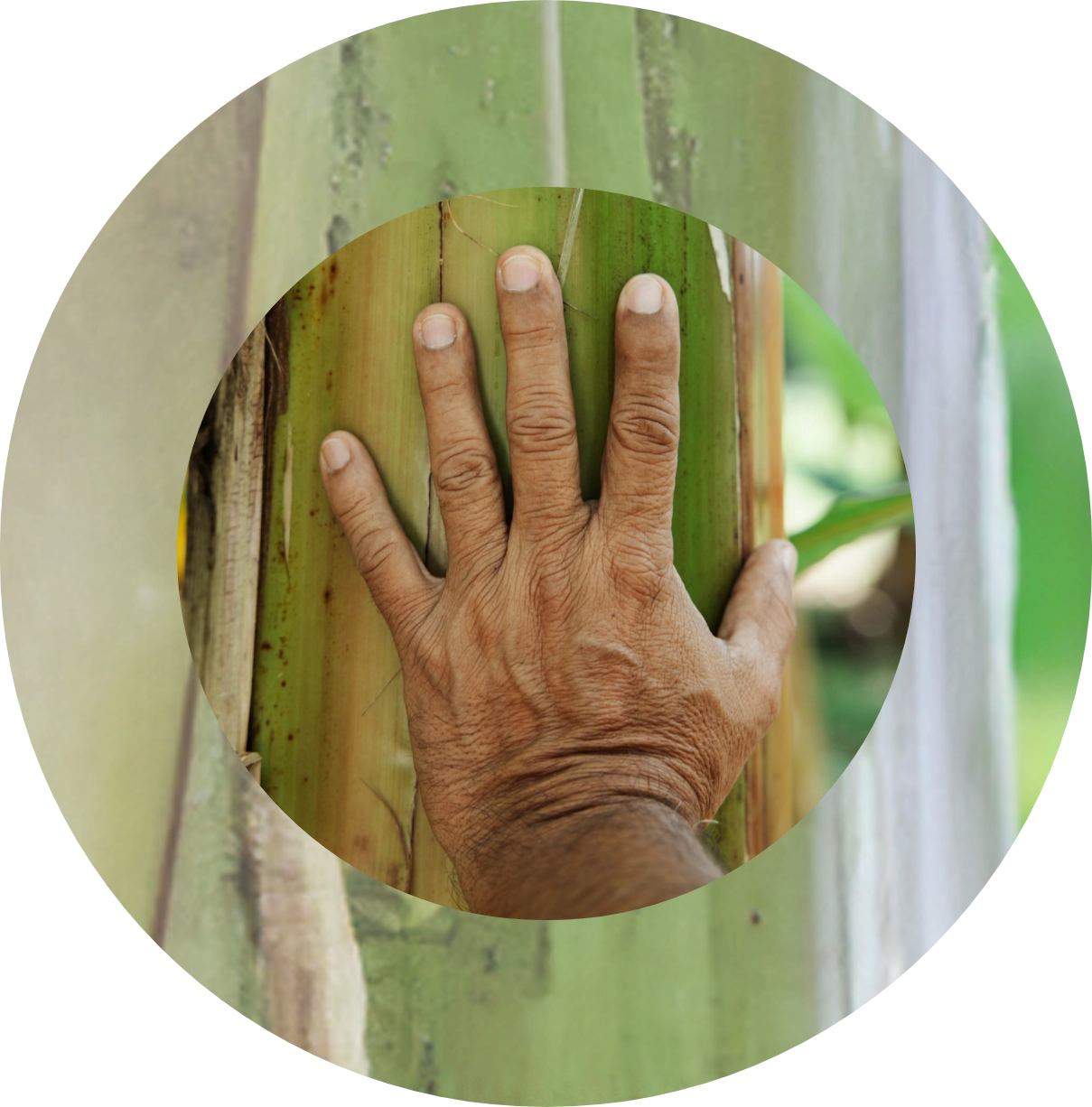
We are on a journey to tell a story that invites consumers into the narrative, showing how sourcing food matters and has an incredible impact through many lives in the supply system we create.
–Juan
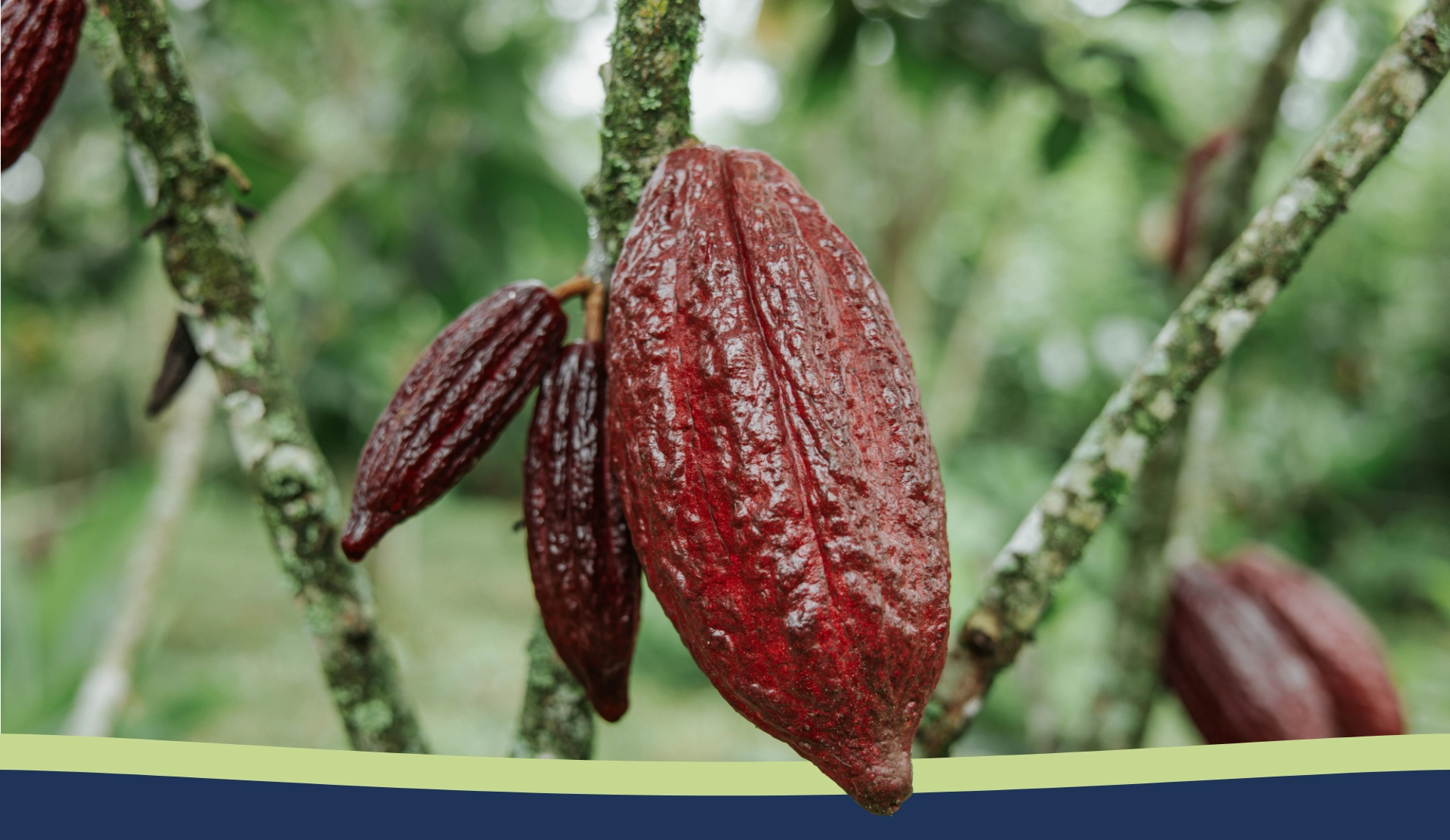
After a few days immersed in the rhythms of the farm, we visit the Artisan Tropic processing plant. The facility is impeccable, both beautifully designed and well maintained, making it a space you want to linger and take in the stunning architecture. We are warmly welcomed by proud employees with warm smiles and excitement as they share the latest design for the plantain chip bags with Juan. The atmosphere is one of genuine camaraderie, with staff members eager to showcase their achievements and the harmonious environment they have created.
Artisan Tropic’s decision to employ locals not only provides jobs but also reduces commute times, allowing employees more time with their families and personal passions. This commitment to creating a supportive and inclusive work environment is tangible. Juan emphasizes their dedication to using sustainable palm oil, sourced according to the rigorous standards set by the Roundtable on Sustainable Palm Oil (RSPO). This ensures that their products do not contribute to deforestation or unethical labor practices.

Artisan Tropic is a family-owned and operated business, their family-ties extending to their partnership with Oscar too. This is because Juan’s sister is married to Oscar’s son, making their collaboration one of familial connection and shared values. “The work that Oscar is doing pioneering regenerative and organic agriculture aligns completely with the Artisan Tropic essence, values, and vision moving forward,” Juan explains. “I have been very inspired by Oscar’s journey and what I have seen him do over the last 10 years on his farm. His philosophical and spiritual approach to farming and agriculture is something that ignites something new within me every time I hear him speak.”
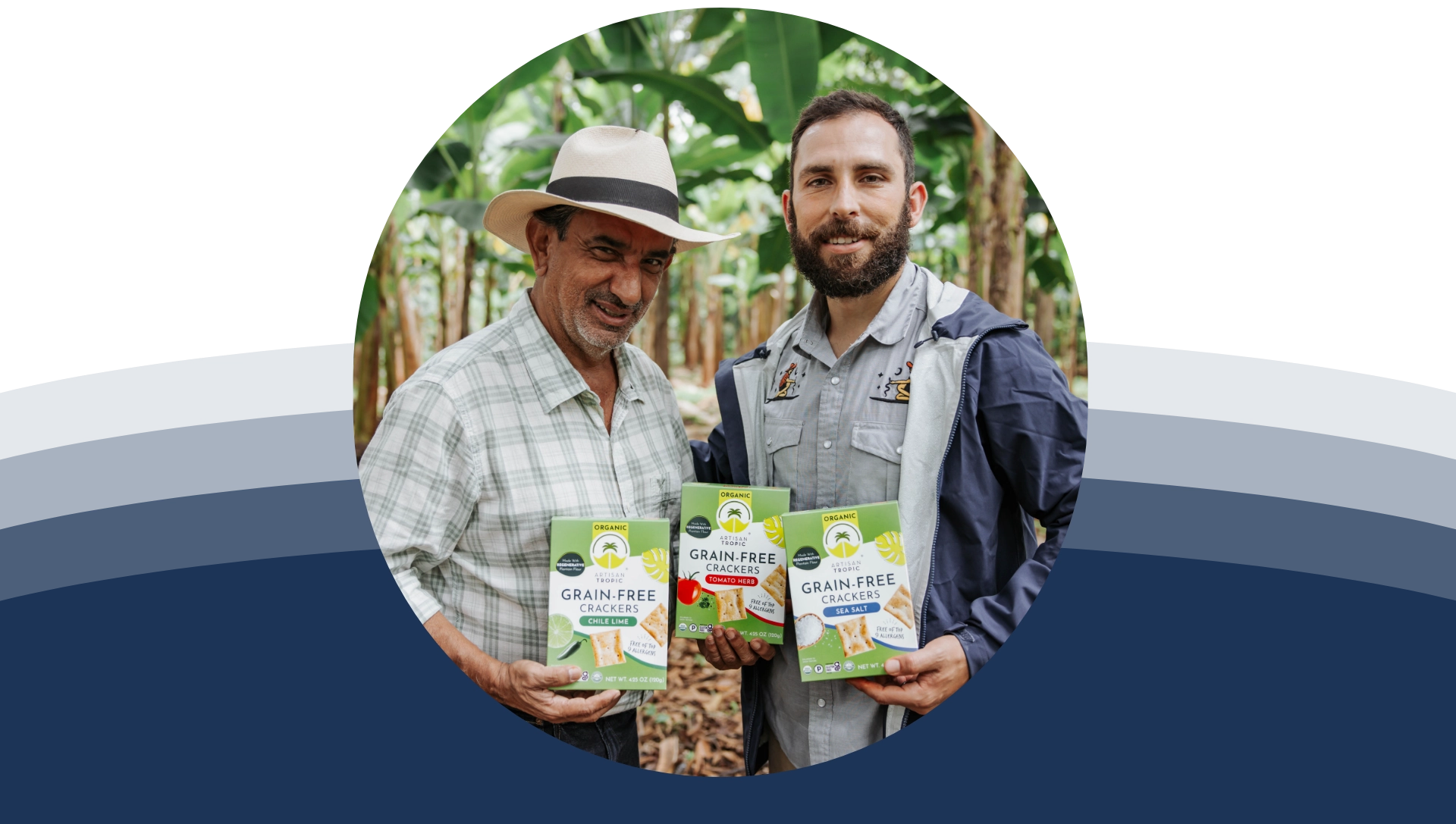
“
I have been very inspired by Oscar’s journey and what I have seen him do over the last 10 years on his farm. His philosophical and spiritual approach to farming and agriculture is something that ignites something new within me every time I hear him speak.
–Juan
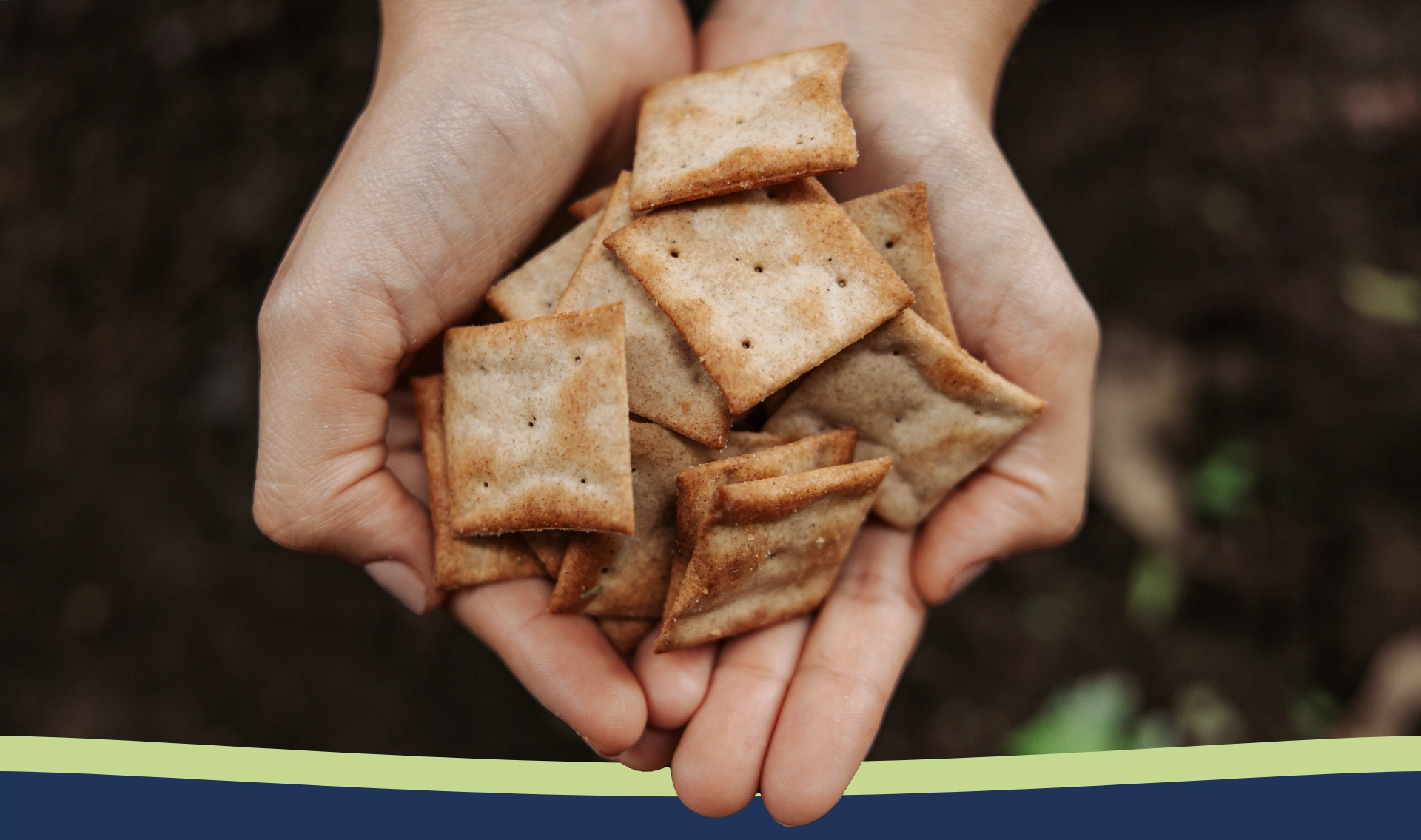
Instead of dictating what raw materials they need, Juan has designed their products around what Oscar grows, letting the land lead the way. This shift allows the farmer to determine what’s possible, sparking creativity and harmony between both entities as they co-create something new. In this way, Artisan Tropic is reimagining the traditional relationship between brand and farmer. It’s a testament to what happens when nature and human ingenuity collaborate to create something beneficial for all.
Just as the farm lives in symbiosis so do Juan and Oscar in their business model. Oscar sets the price for his organic plantains, and Artisan Tropic honors this, recognizing the value and quality of his produce. “We want to be a brand that is trustworthy, transparent, and that really helps people connect to the source of their food,” Juan says.
“We are on a journey of trying to engage consumers with a story and bringing them into this narrative, showing how sourcing food matters and has an incredible impact through many lives in the supply system we create.”
Oscar, along with fellow farmers in the region, is embracing regenerative agriculture to cultivate a diverse array of crops including Coffee, Cacao, and Turmeric. Juan tells us he is inspired by the potential to innovate with these ingredients, in ways that not only support the farmers’ efforts but also reflect the true value they bring to our food systems. While they are still conceptualizing with ideas of new product lines, this vision is a source of deep passion and commitment for Juan and the Artisan Tropic team. They are committed to exploring new avenues that not only support these farmers on their journeys but also ensure they receive the recognition and rewards they truly deserve.

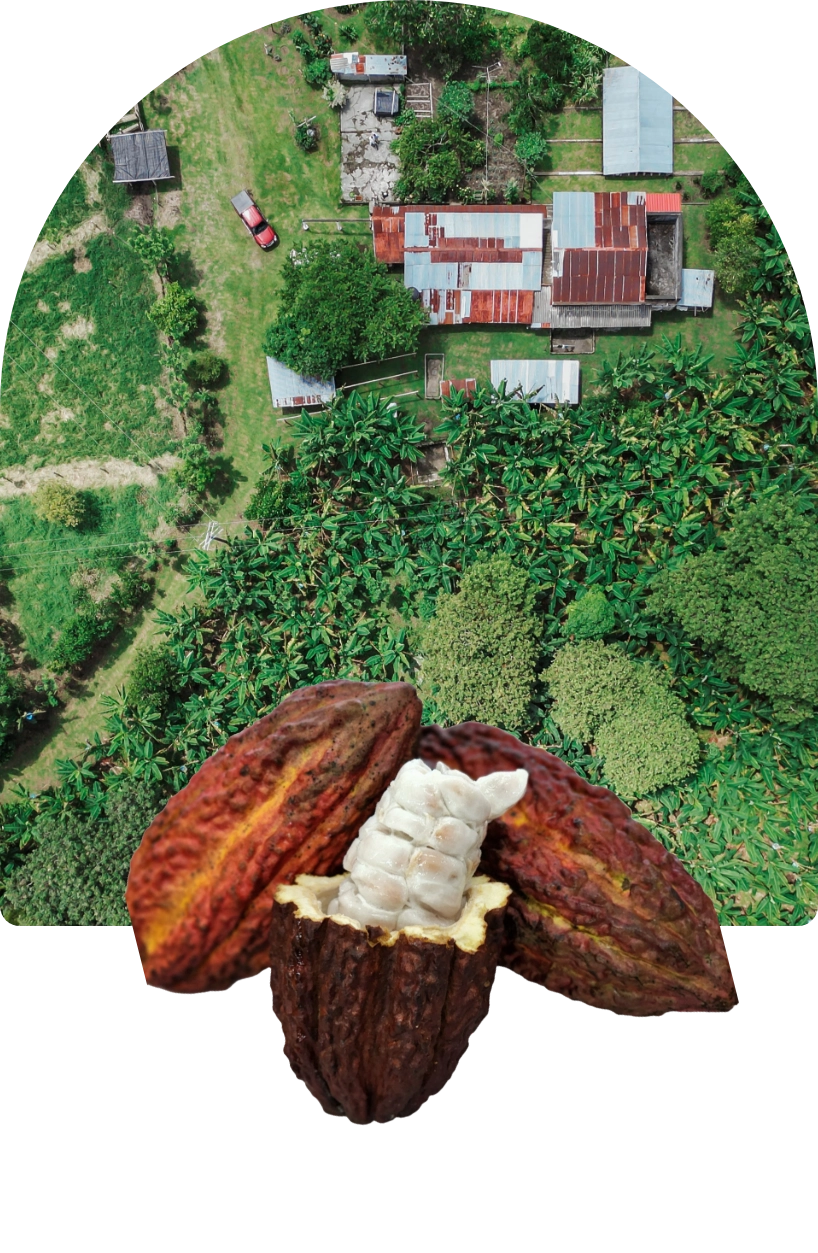
The collaboration between Oscar Agudelo and Artisan Tropic exemplifies the transformative potential of regenerative agriculture. Their work is a beacon of hope, demonstrating how thoughtful, sustainable practices can lead to thriving communities and a healthier planet. By choosing products that prioritize sustainability and fair trade, we can all contribute to this ripple effect, supporting a more resilient agricultural system and a brighter future for our planet.
As I leave Finca Jerusalem, I am filled with a profound sense of connection—to the spirit of the earth, to the rich culture, and to a family devoted to sharing their passion for a balanced and meaningful life. Oscar and Juan have shown me that with dedication, respect for the land, and a commitment to community, we can create a ripple effect of positive change. This journey is not just about farming; it is about honoring our heritage, supporting our communities, and fostering a deeper connection to the natural world. I am leaving with a strong sense that as Artisan Tropic say, Our Future Is Regenerative.
